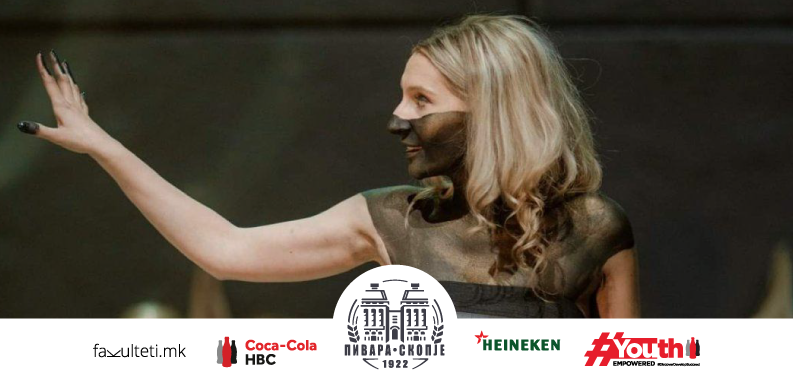
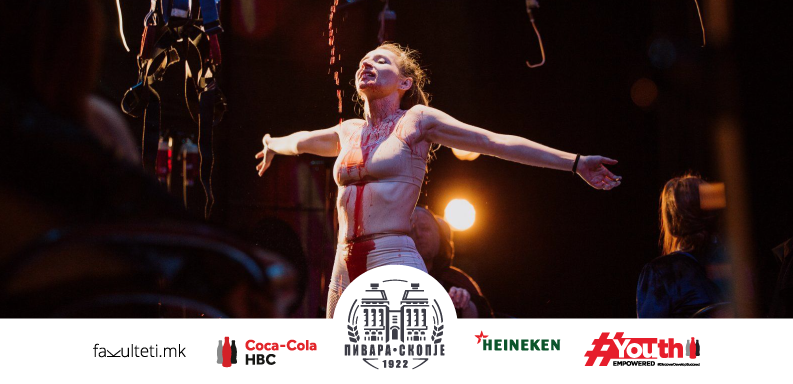
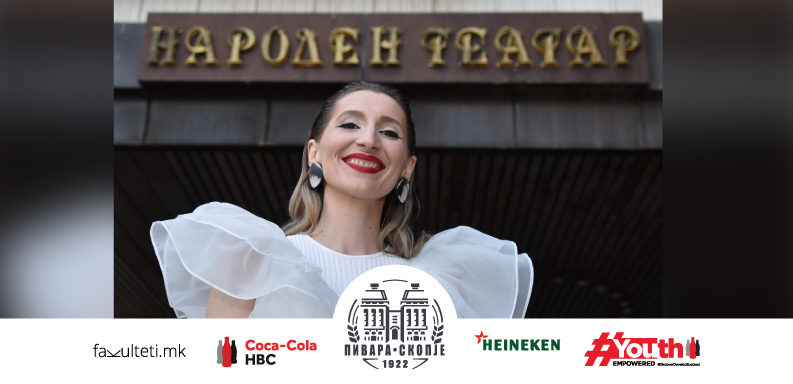
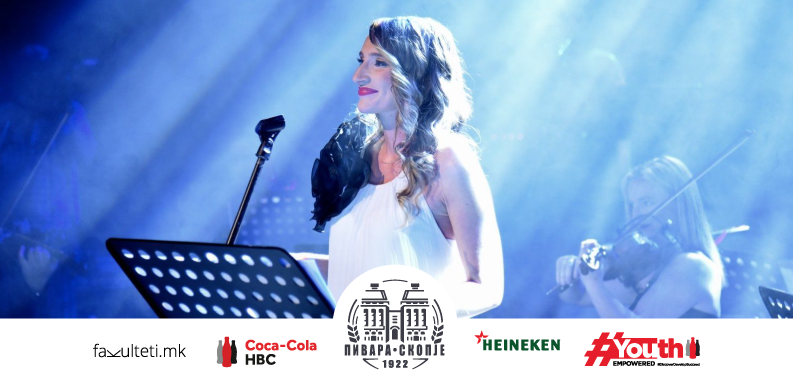
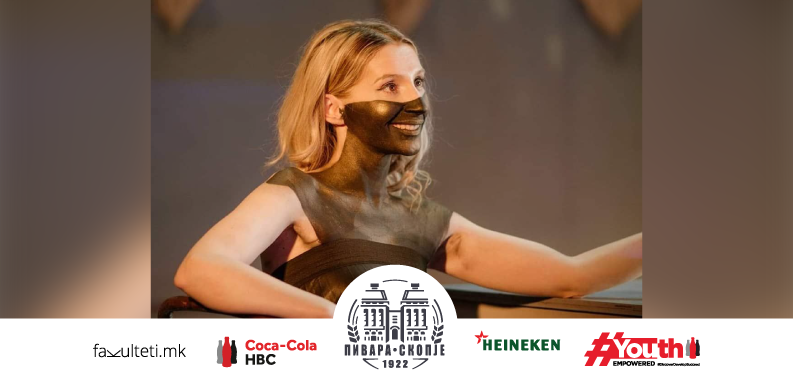
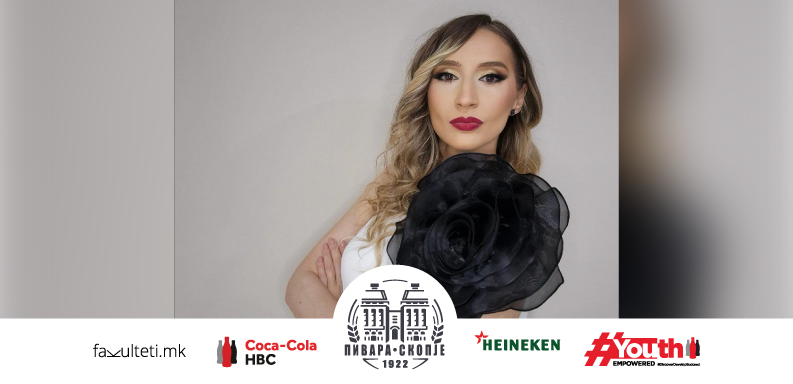
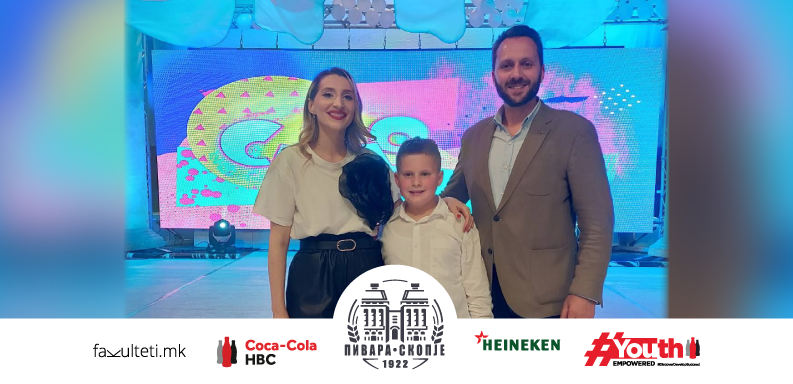
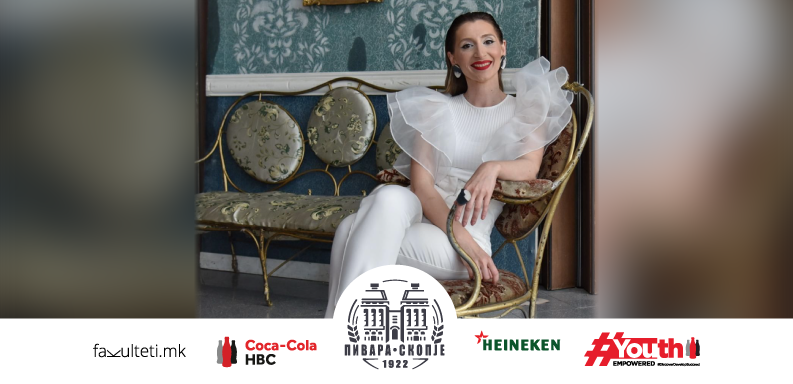
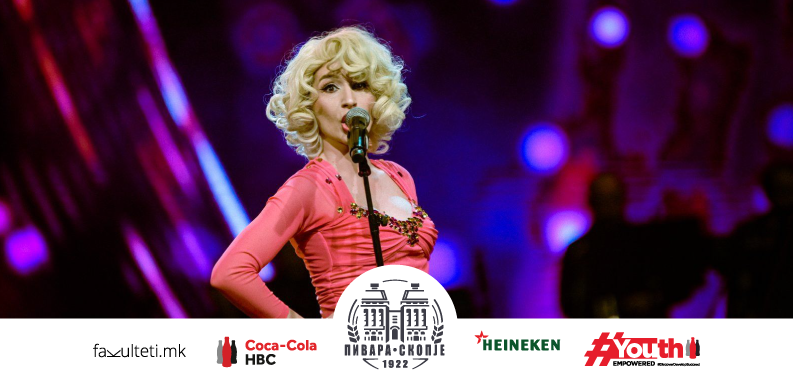
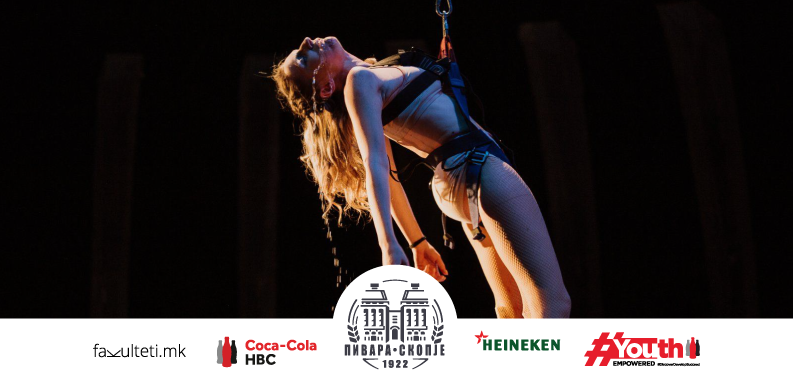
UP THE LADDER OF SUCCESS WITH MAJA ANDONOVSKA-ILIJEVSKI, DIRECTOR OF THE CULTURAL CENTER IN BITOLA: “THE POSITION IS TRANSIENT, AND THE THEATHER IS A LIFELONG LOVE”
On the first of June, she celebrated 18 years since her first premiere on the stage of the National Theater in Bitola. In her fruitful acting career, she has played 54 premieres in Bitola and on other theater stages. For six years now, she has been at the helm of the Cultural Center in Bitola, which hosts prestigious cultural events such as the film festival “Brothers Manaki,” “Ilindenski denovi,” “Monodrama,” “Music from the world,” and many others. During her directorship, Bitola became a recognized place on the music map for artists worldwide, hosting performances by legendary acts like “Laibach,” “Lilit,” Joana Amendoeira, Darko Neshkovski, Heli Siekkinen, and many others. Despite the demanding pace she set for organizing cultural events, Andonovska-Ilijevski did not give up on the theater, seizing every opportunity and free time to perform in theater plays. She is guided by the motto: “The position is transient, and the theater is a lifelong love.”
As a child, she dreamed of becoming a singer and was happiest when she was performing
She had her first contact with the stage in 1994 when she performed at the “Si-Do” children’s festival in Bitola, one of the most popular in the country at the time. At the age of ten, she thought she would pursue a career in music. She studied at a lower music school, played the flute, and performed in the children’s TV series “Dajte Muzika” and “Zdravo Genijalci”. She was happiest when she was performing. However, as a delicate girl with frequent colds and allergies who was learning to play a wind instrument, her mother convinced her that pursuing music was not the best choice when it came time to enroll in high school.
“In the beginning, I was a bit angry because my brother (singer Dimitar Andonovski), who is younger than me and has always been more musical, did not get such a veto. From today’s distance, and as a mother of a child, I completely understand my mother. She did me a favor to get acquainted and fall in love with theater art, and there is as much music as my heart desires. Plus, I still sing when I act, and for two years now, I have been participating in the event titled “Glumcite peat” (“Actors sing”) in Skopje with great joy and enjoyment,” says Andonovska-Ilijevski.
Professor Anushka Kosturska convinced her mother to support her in studying drama
Continuing her secondary education in high school and not in the secondary music school was decisive for her change of interests. She began visiting the National Theater in Bitola frequently and watched some performances multiple times. She was captured by the magic of the theater and discovered a new world she wanted to be a part of. That’s how she started going to the drama section in her school. Her first role was Juliet from Shakespeare’s work, and until she finished her secondary education, she was part of all the plays they did at school. She received great support from her Macedonian language teacher, Anushka Kosturska, who, apart from encouraging her to read, analyze works, and watch plays, was also a key factor in convincing her mother that Maja should continue at the Faculty of Dramatic Arts (FDU).
“I decided to study at the Faculty of Dramatic Arts in my first year of high school, but in the next three years, I focused on making the decision acceptable to my family as well. I don’t come from an artistic family, and somehow everyone at home thought that I would study English or Macedonian language. My grandfather, who was a doctor, was particularly skeptical of the profession I had chosen, and we often debated whether acting was suitable for a woman and what sacrifice it required. Somewhere before graduation, my Macedonian language teacher, after a parent-teacher meeting, asked my mother to discuss my talent and the support I should receive to enroll in the Faculty of Dramatic Arts. My mother softened and told me that she supported my decision, and she is still my greatest support wall and wind at my back,” says the actress.
If there was a time machine, I would go back to my student days at FDU
She enrolled at FDU in the class of Kiril Ristoski and then-assistant Zoja Buzalkovska. Accepted into a class of 13 people from across the country, she remembers the next four years at the faculty in Skopje as the best of her life. A seriously dedicated student, she graduated with an average of 9.6. She attended all the lectures with joy, participated in many exam exercises of the student directors, and filmed student exam films, never resting.
“I was chosen as a representative from the faculty in the third year, along with another classmate, to go to a student theater festival in Corsica. There, we participated in workshops and a joint performance with student actors from all over the world. I was very happy and proud about it. I had a wonderful and unforgettable four years at the university. If there was a time machine, I would go back to my student days at FDU,” she says.
She simultaneously received an offer to work at the Macedonian National Theater and the National Theater in Bitola
During the last semester in 2006, director and professor Vlado Cvetanovski invited her to be part of his latest play at the Bitola Theater, “The eighth wonder of the world.” It was her first official premiere in the theater where she dreamed of standing side by side with the acting idols of her high school days.
“To be honest, for me the Bitola Theater has always been and remains the number one theater house. It was my biggest dream come true. Premieres began to follow, and after a year I received an invitation from directors Zlatko Slavenski and Sasho Milenkovski to become part of the ensemble of the Macedonian National Theater in Skopje. I was standing at a major crossroads because I received the same offer from the National Theater in Bitola. It was perhaps the most difficult decision for a young actress, but at that moment, I decided to stay in Bitola, a decision I have never regretted,” she says.
The actor is the sunshine to the blind, the voice of the underprivileged
She played many roles, both leading and supporting, and in each, she gave a piece of her soul. When asked what it means to her to be an actor, she answered through poetry:
“Being an actor means simply being!” The Shakespearean “to be”!
Being sunshine to the blind…
Being comfort to the sad…
Being support to the hopeful…
Being the voice of the underprivileged…
Being wakefulness to the sleeping ones…
Being sanity to the mad…
Being a smile to those who cry…
Being love to the lonely ones…
Being a force for the underprivileged…
Being art versus kitsch…
Being today, being tomorrow…
Being an actor, who will be a voice, not an echo…
Being life versus death…”
As a director, she did not allow politics to interfere in her work
For her, the Cultural Center where she is the director will always be a story that brings a smile to her face. The creativity in repertoire policy, events, concerts, exhibitions, promotions, and festivals she organizes, and hosts have turned Bitola into a cultural crossroads of art.
“Sometimes I sit in the audience, I watch, and I’m proud of everything we’ve accomplished with my team of professionals. I’m not someone who gives up; I always strive to make every new festival, every event a step ahead of the previous one. I constantly challenge myself, and that’s my motto: Everything is possible with dedication, persistence, and never giving up,” says Maja.
We asked her about the presence of politics in culture, to which she replied: “There is politics everywhere, even in culture. Politics in culture is the greatest evil for me… As a director, I’ve always strived to keep politics from interfering in my work, and deep down, I believe I’ve succeeded in opening doors for all artists who create, work, and have something to offer. Personally, art builds bridges where politicians tear them down.”
Recognizable by her original style
Maja Andonovska-Ilijevski, apart from being a masterful actress and director with great managerial skills, also leaves a mark with her distinctive style of dressing. She is regularly seen as one of the most elegant women on the red carpet at “Brothers Manaki” and other cultural events.
“Everything I wear is an extension of my sensibility, character, and temperament. I want my clothing to reflect my story, and in crafting that style narrative, I collaborate with creators and stylists as needed. Papaz and Ermitaz are my faithful collaborators, and I support them, but I’ve also worked with TAO, LOM, Blagoj Micevski, and the teachers from the textile department of the High School in Bitola for their Creative Day… Anything creative and inspiring can be part of my style,” she says.
Zhaneta Zdravkovska









